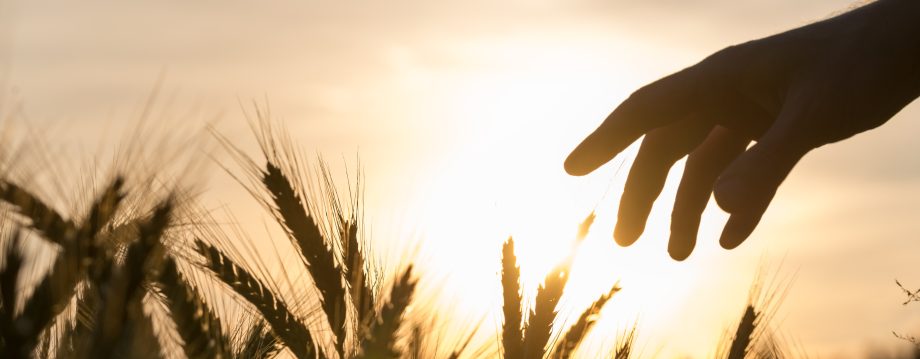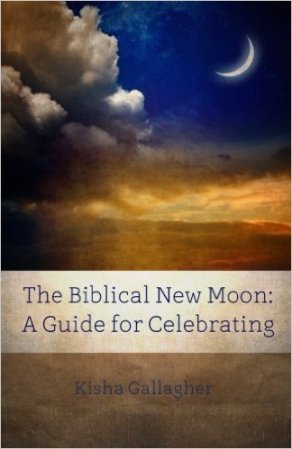
The Haftarah Cycle: A Brief Introduction
In this new Torah cycle,[1] I’m devoting special attention to the prophetic portion or the haftarah. Thus, I will share little nuggets with my readers when I have time. But first, I offer a review of the history of the haftarah for those new to the Torah cycle.
Haftarah comes from a Hebrew root that means to end or conclude. (It does not mean “half!”) The haftarah portion is a selection of verses from the prophets or the writings in the Tanakh.[2] This selection is thematically connected to the weekly Torah Portion about a third of the time, but there are special haftarot (pl.) related to the calendar such as Feast days or Rosh Chodesh, or for historical events such as the destruction of the Temples and the subsequent exile.
For example, from the first Sabbath after Tammuz 17th, until the turn of the year at Rosh Hashanah, the haftarah portions shift from being thematically connected to the Torah Portions to reflecting the historical events that occurred at that season. (For more information see: The Three Weeks or watch “The Dire Straits: This Season in Tradition,” a message I delivered at Revive 2020.)
The institution of the haftarah cycle varies, depending on the source. There are several theories about how this custom began. The most common one suggests that it began during the reign of Antiochus Epiphanes, who outlawed Jews from reading the Torah, but allowed the other writings. Another theory says that the haftarah was established in response to the Samaritans, who denied the inspiration of the prophets and writings, but followed the Law of Moses.
Interestingly, the oldest reference to the haftarah cycle is found in the Brit Chadashah (New Testament). In the first century, there was a custom to read from the Torah and the Prophets on the Sabbath day in the synagogues:
Luke 4:16-21 (TLV) And He came to Natzeret, where He had been raised. As was His custom, He went into the synagogue on Shabbat, and He got up to read. 17 When the scroll of the prophet Isaiah was handed to Him, He unrolled the scroll and found the place where it was written, 18 “The Ruach Adonai is on me, because He has anointed me to proclaim Good News to the poor. He has sent me to proclaim release to the captives and recovery of sight to the blind, to set free the oppressed, 19 and to proclaim the year of Adonai’s favor.” 20 He closed the scroll, gave it back to the attendant, and sat down. All eyes in the synagogue were focused on Him. 21 Then He began to tell them, “Today this Scripture has been fulfilled in your ears.”
Acts 13:14-16 (NASB) But going on from Perga, they arrived at Pisidian Antioch, and on the Sabbath day they went into the synagogue and sat down. 15 After the reading of the Law and the Prophets the synagogue officials sent to them, saying, “Brethren, if you have any word of exhortation for the people, say it.” 16 Paul stood up, and motioning with his hand said, “Men of Israel, and you who fear God, listen.”
While the yearly Torah cycle covers every word in the Torah or Books of Moses, only a small selection from the prophets and writings are read through each year. In fact, only two prophetic books are read completely as haftarot in the modern order: The Book of Obadiah and the Book of Jonah.
There are differences between the reading selections of haftarot in Ashkenazi, Sephardi, and Yemenite communities, though they are similar. Historically, though the Jewish people had a custom of reading from the prophets after the Torah portion, there wasn’t a set order. Until more recent times, random selections were chosen. Moreover, in the old triennial (3 year) Torah cycle, there were naturally many more haftarah portions. So, those that suggest that the Jewish people purposeful removed certain prophecies from Isaiah to keep people away from Yeshua are completely ignorant of the haftarah’s history. Don’t fall into their traps.
There are traditional blessings recited before reading the haftarah, and afterwards.
Blessing Before Reading Haftarah
Barukh attah Adonai eloheinu melekh ha’olam asher bachar binvi’im tovim ve-ratzah ve-divreihem hane’emarim be’emet. Barukh attah Adonai ha-bocher ba-torah uv’Moshe avdo uv-Yisra’el amo, uvinvi’ey ha-emet va-tzedek.
Blessed are you, O LORD, our God, King of the universe, Who has chosen good prophets, and was pleased with their words spoken in truth. Blessed are you, LORD, who has chosen the Torah, and his servant Moses, and his people Israel, and the prophets of truth and righteousness.
Blessing After Reading the Haftarah
Barukh attah Adonai eloheinu melekh ha’olam, tzur kol ha-olamim, tzaddik be-khol ha-dorot, ha-El hane’eman ha’omeir v’oseh, hamdabeir u’makiyem, shekol devarav emet ve-tzedek. Ne’eman attah Adonai eloheinu, ve-ne’emanim devarekha, ve-davar echad midevareykha achor lo yashuv reikam, ki El melekh ne’eman ve-rachaman attah. Barukh attah Adonai, ha-El hane’eman be-khol devarav.
Blessed are You, Adonai our God, King of the Universe, Rock of all eternities, righteous in all generations, the faithful God, who says and does, who speaks and fulfills, all of whose words are true. Faithful are you, LORD our God, and faithful are your words. Not one of your words turns back unfulfilled, for You, O God, are a faithful and compassionate King. Blessed are You, LORD, the God who is faithful in all His words.
Further Reading
The JPS Bible Commentary: Haftarot by Michael Fishbane
The Haftarah Commentary by W. Gunther Plaut
The Women’s Haftarah Commentary: New Insights from Women Rabbis on the 54 Weekly Haftarah Portions, the 5 Megillot & Special Shabbatot by multiple authors
The Book of Haftarot: An Easy-to-Read Haftarah Translation by Sol Scharfstein
Book of Haftaros – Gutnick Edition by Rabbi Chaim Miller
Like the Days of Noach
Prophetic Portion to Noach:[3] Isaiah 54:1 – 55:5
The context of this portion is decades of Babylonian captivity. Can you imagine spending decades in exile away from your land and your home? In a sense, we are currently in exile in a spiritual Babylon. Will Adonai leave us here forever?
 This haftarah portion floods the reader with the theme of redemption from exile. God has not forgotten us or our children. In fact, He beckons us to partake freely of His water, bread, and wine – His teachings – because they are life. Our disgrace for disobedience has an end, and it is rapidly approaching. Adonai describes His anger as a momentary flood, but His chesed as everlasting.
This haftarah portion floods the reader with the theme of redemption from exile. God has not forgotten us or our children. In fact, He beckons us to partake freely of His water, bread, and wine – His teachings – because they are life. Our disgrace for disobedience has an end, and it is rapidly approaching. Adonai describes His anger as a momentary flood, but His chesed as everlasting.
Isaiah 54:8 (LITV) In a flood of wrath (be-shetzef ketzef) I hid My face from you for a moment; but I will have pity on you with everlasting kindness, says Jehovah your Redeemer.
It is in that context that He says this is “like the days of Noah to me.” Adonai’s anger (judgment) is like the waters that destroyed the earth in Noah’s day; but His promise to take Israel back is even more powerful than the great deluge. While the flood of His anger was temporary, His promises are forever. We can count on them to engulf us with His goodness.
Isaiah 54:9 (NASB) “For this is like the days of Noah to Me, When I swore that the waters of Noah Would not flood the earth again; so I have sworn that I will not be angry with you nor will I rebuke you.”
From Adonai’s perspective, “like the days of Noah” reminds Him not of His anger, but of His mercy and promise. Israel had sinned against her Maker, breaking the covenant agreed upon at Mt. Sinai. After enduring the curses for her unfaithfulness, Adonai promised Israel a new start just as He had promised Noah and his descendants. The entire prophetic portion floods an underserving Israel with God’s boundless chesed (loving-kindness).
Isaiah 54:10-14 (TLV) Though the mountains depart and the hills be shaken, My love will not depart from you, nor will My covenant of peace be shaken, says Adonai who has compassion on you. 11 Afflicted one, storm-tossed, unconsoled, behold, I set your stones in antimony, lay your foundations with sapphires, 12 make your pinnacles of rubies, your gates of crystal, and all your walls of precious stones. 13 All your children will be taught by Adonai. Your children will have great shalom. 14 In righteousness you will be established. You will be far from oppression—for you will not fear—and from terror—for it will not come near you.
The phrase “like the days of Noah” only occurs in a few places in Scripture. When Messiah uses this phrase in Matthew 24, most connect it with the judgment that Adonai wrought upon the whole earth because of the evil hearts of men, violence, and corruption. Hopefully, the link to Messiah’s words about the coming of the Son of Man, the end of days, and the evil that will be prevalent at that time is clear. He does not let the guilty go unpunished…

However, He also abounds in chesed and forgives iniquity, transgression, and sin. (Ex.34:4-9) This is a two-sided coin. And, “like the days of Noah” is a two-sided phrase. On the one hand, blatant disobedience and sin must be punished – like a flood of fiery wrath. On the other hand, God is gracious, merciful, and abounding in chesed – like a gushing river of life. Both are true.
Noach received favor or grace as a righteous one in his generation. His name (nun, chet), if read backwards, even spells grace (chen – chet, nun), which gives us a clue. Perhaps, the phrase “like the days of Noah” has dual meanings as well. After all, Biblical real estate is precious. There are no words or phrases that are superfluous. The prophetic portion of Noach nearly overwhelms the hearer with the gushing love of God. His promises flow out in a torrential down pour that sound too good to be true. Especially, to a people that have been unfaithful to her Maker and Husband.
How could it be that after all we have done, after all our unfaithfulness, after all our selfish choices, after multitudes of sins, derisions, and infidelities, that the Creator of the Universe, the God of Israel, Builder of Zion, will take us back to Himself? Can this be true? Peter compares God bringing Noach and his family through the flood waters to baptism and a clean conscience. (1 Peter 3:18-22) Adonai promises as sure as He promised to never flood the earth again that He WILL remove our disgrace, enlarge our tent, fill our wombs, comfort us, and quench our thirst and hunger. This is the Good News of the Kingdom!
In this sense, “like the days of Noah” distinctly refers to God’s everlasting chesed, mercy, and love. He makes a Way where there is no way. Isaiah 53 precedes Isaiah 54. This is Adonai’s everlasting covenant of peace, and He is eager to share it with each one of us. Thus, when we read Matthew 24 or Luke 17 where the Messiah draws our  attention back to “the days of Noah,” don’t just focus on the judgment or the flood of His wrath. Instead, look up for the Coming Kingdom and Promises fulfilled! These portions should bring us comfort in the days ahead, just as Noah’s father proclaimed:
attention back to “the days of Noah,” don’t just focus on the judgment or the flood of His wrath. Instead, look up for the Coming Kingdom and Promises fulfilled! These portions should bring us comfort in the days ahead, just as Noah’s father proclaimed:
Genesis 5:29 (TLV) And he named him Noah saying, “This one will comfort us from our work and from the pain of our hands because of the ground which Adonai cursed.”
[1] First Fruits of Zion has a beautiful online and printable schedule for the yearly Torah cycle: https://torahportions.ffoz.org I also love their yearly calendar: https://ffoz.com/eretz-yisrael-wall-calendar.html
[2] Tanakh is an acronym that stands for the Torah (Books of Moses), the Nevi’im (Prophets), and the K’tuvim (Writings). Altogether, these three make up the complete Jewish Bible or the complete Old Testament for Christians.
[3] Torah Portion Noach (Noah): Gen. 6:9 – 11:32; Haftarah: Is. 54:1 – 55:5






